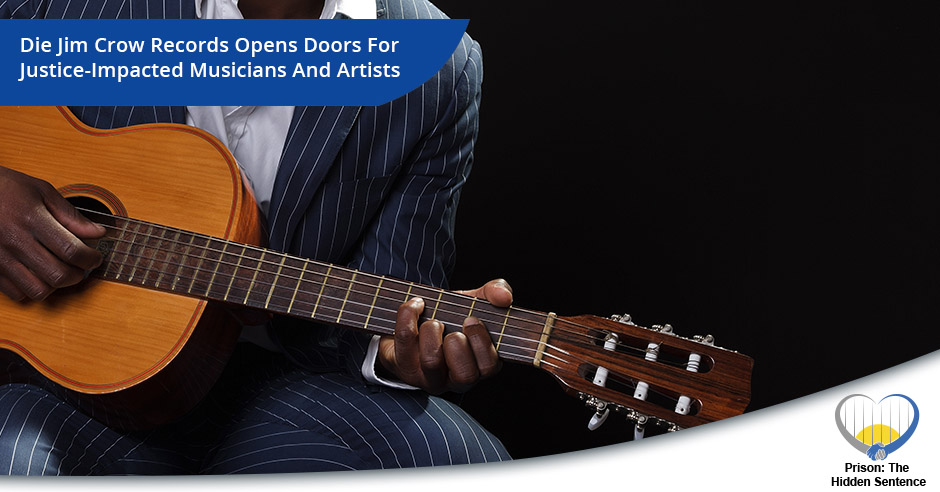
We need to dismantle stereotypes around race and prison in America by amplifying the voices of justice-impacted musicians and artists. Meet Fury Young, the Founder and Executive Director of Die Jim Crow, a record label for currently and formerly incarcerated musicians. Die Jim Crow’s mission is “dismantling stereotypes around race and prison in America by amplifying the voices of justice-impacted musicians and artists.” Fury and his team are trailblazing the way for us to hear those voices that are or have been hidden behind bars and have a story we need to hear.
—
Listen to the podcast here:
Die Jim Crow Records Opens Doors For Justice-Impacted Musicians And Artists
I want to tell you about the Prison: The Hidden Sentence book. There are so many things that you need to know when a loved one is taken into the prison system that nobody tells you. This book will provide valuable information to help you as you go through the prison system stages with your loved one. I also shared stories so you know that you are not going through this alone. Prison: The Hidden Sentence book can be purchased on Amazon.
—
I’m here with Fury Young, the Founder and Executive Director of Die Jim Crow, which is the first record label for justice impacted musicians. It’s for those that have been or are currently incarcerated. I met Fury in 2017 when he was working on the first Die Jim Crow album. Now, that passion is turned into a record label. Fury, you’ve accomplished so much in the time I’ve known you. We’ve done a few interviews over the years. I’m happy that you could join me. Where do you want to start?
Thank you for having me on, Julia. It has certainly been quite a few years. I met you in 2017 at a conference in Dallas, the InterNational Prisoners Family Conference. Since then, Die Jim Crow has become a record label. There is plenty to talk about. It’s interesting that when I met you, the seed for the new album that we put out started to be planted. If you like, we could talk about that.
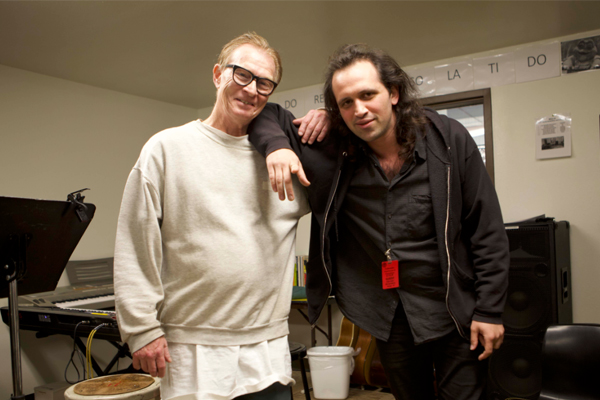
Let’s start there. We can go back to a few other things about what gave you this idea. Let’s talk about the current album because that’s exciting.
On August 12th, 2021, we put out our new record called Tlaxihuiqui from a group called Territorial. That whole idea started in that conference in a way because I met a woman named Claudia Whitman. She was an innocence investigator. I attended a panel called So You Think Your Loved One Is Innocent? At that time, I was helping someone with their innocence case on the side of the music work that we do.
I attended the panel and I liked Claudia. We connected a bit about that case. Later in the conference, I did this short presentation where I talked about Die Jim Crow. At that time, Die Jim Crow was this one album and it was a concept album about racism in the US prison system. Most of the artists were formerly and currently incarcerated Black musicians because it was about Black folks’ experience as the most disproportionately affected group of people in the criminal justice system.
We need to dismantle stereotypes around race and prison in America by amplifying the voices of justice-impacted musicians and artists. Share on XWhen I made the presentation, I let that be known. I said that I was looking for more artists and specifically more prisons to gain access to because, at that point, access to facilities was a huge stumbling block for me. This was still when I was doing everything myself. I was knocking on all these doors, sending emails and proposals to different prisons, and continuing to get the door shut in my face. I had some success in Ohio in 2014, gaining access and recording there twice the following year. From 2015 to 2017, it was always doors closed.
I let it be known in the little presentation I did. I got off the stage and shortly after, Claudia came back up to me and she says, “I know this guy in prison in Colorado who I’ve known for years. He is a good musician but he is White. Is that okay?” I liked Claudia’s energy a lot and her cause. She said she might help me with the innocence case I was working on. I was like, “Why not?” I didn’t want to close any doors on her. She says, “You have this book here and I’m going to buy a copy of it. I’ll send it to this guy. His name is Michael Tenneson.” I was like, “Sounds good.”
She sent him the book and I should have known then that was a no-turning-back point. I returned to New York a week or so later. Shortly after, I got a letter from Michael who is quite passionate and interested in this idea of making music. At that time, keep in mind, I thought that the idea of getting access to the Colorado prison system, let alone any prison system, would be very difficult.
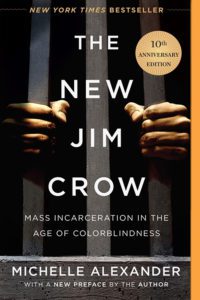
I wanted to add that you’re actually looking to go into the prisons to have those who were incarcerated that wanted to play music, had a voice, had songs, had music for us to hear, and had these talents to do the recording. I wanted to make sure that everybody knows that. That’s big. I don’t know if anybody has done that a lot in the past. Some performers have gone into prisons like Johnny Cash and some others that we know of and that we hear about. This was big for you to get into the prisons to do that. Anyway, I wanted to bring that out to people and what you were working to do.
There have been examples in the past and we pay respect very much to those who have done this. This was a little different than that. It was on its face called Die Jim Crow. It was a little bit harder to get access, especially in those early years when we didn’t have much reputation. What happened with the Colorado stuff is that, surprisingly, it worked out. There were so many weird factors. Not only was Michael Tenneson is White, and I won’t go into the details, but he has a very heinous and intense crime of multiple homicides. That was a huge hesitation for me at first.
I didn’t know that when I talked to Claudia, but I had to go off of his word in that letter, his passion, and that he was a real musician who’d been playing for decades. He also was very committed to the idea of getting Black artists onto the project because, at that time, that was the Die Jim Crow thing for this album. What happened was I met a guy named Justin Jones through a colleague a few months later. Justin was the former Director of the Department of Corrections in Oklahoma. Justin and I instantly hit it off. He is a real music fan. He has great opinions and beliefs around the criminal justice system.
Jim Crow was the original stereotype in America, and it led to so much damage. Share on XHe is a mentor to me. He said, “Fury, I want to help you. I’m a public servant for this project. Let me know what I can do.” I said, “I need to gain access to more prisons.” He said, “I can help with that.” He had me send him a list of all the states that I was talking to people in, and Colorado was one of the more promising ones. A week or so later, he sends a nice letter on his official letterhead and signs it. He knew Mr. Rick Raemisch at the time, who was the Director of Colorado. He knew him personally so he sent the letter. I sent him the proposal with the letter.
About 2 or 3 months later, I get an email from Mark Fairbairn who was the Public Information Officer at the time of the Colorado Department of Corrections, saying, “You’ve been gained access.” I was floored. I couldn’t believe it. Those three years of knocking my head against walls trying to get access to prisons and there we go, Colorado, the White guy musician. The thing you least expect is the thing that happens.
The history that I don’t think the people on here know if they haven’t read the previous interviews is how you got started in this. If we can go back to the beginning because they can’t see you and they don’t know what you look like. That was an interesting story that you could share.
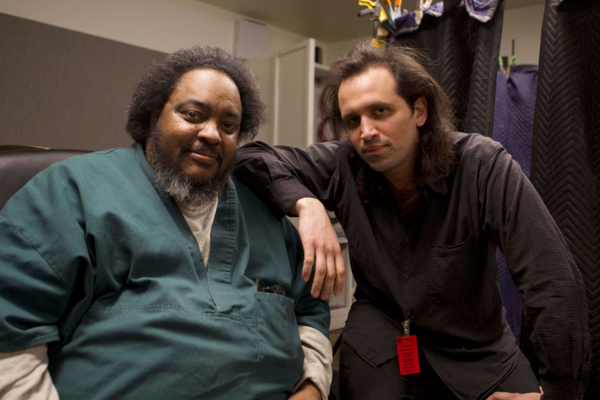
Are you saying that I used to have long hair?
Besides the long hair and being White.
I did have quite very long hair. I was a rocker dude. I still am. I wanted to make this album about the prison system and everything that was messed up, racist, draconian, flat out outdated, expired, heinous about it, tie in history and multimedia. I had read the book The New Jim Crow by Michelle Alexander. In that book, she talks a lot about how media played a role in the rise of mass incarceration. I pictured presidential speeches, war on drugs era commercials, “Just say no,” and stuff like that.
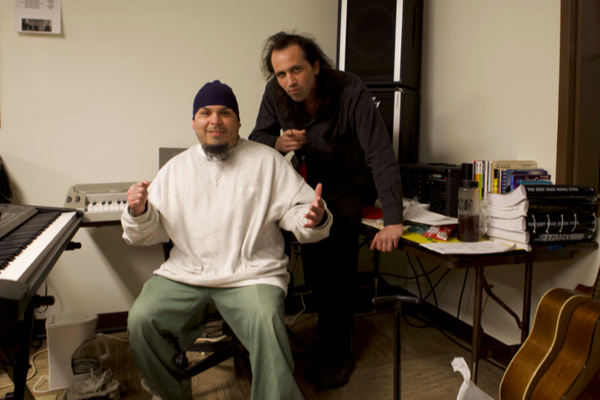
Up in this landscape of three acts, pre-prison, prison and re-entry, and having different formerly and currently incarcerated Black artists from across the country tell their stories in those three acts around 1970 to the present day. Also, with some abstract elements of going back to the 1800s when the Blackface minstrelsy became a huge thing because of a song called Jim Crow. The term Jim Crow all comes to this song. That idea has ended up evolving in many ways. That album in its full-length form has not been recorded. We put out an EP with six songs in 2016, but that Die Jim Crow LP became the record label.
I still want to do the LP. My lips are sealed on the details but there are some. I was a young activist. It was 2013. I read The New Jim Crow. I was listening to a lot of concept albums like The Wall by Pink Floyd and Amused to Death by Roger Waters. I thought this would be a good idea. I had a hesitation. I am White and Jewish. I’ve never been to prison but I did grow up in the lower East Side of New York in the early ‘90s. I’ve always been around people who have lived street life. I had a close mentor named Alexander Pridgen who did time. He was Muhammad Ali’s bodyguard. He had a crazy life.
My dad was a social worker who worked with folks who’d been incarcerated. I worked with these people who had just gotten out when I entered the workforce in my early twenties. It was something that even though I was an outsider, I still felt enough comfort level to at least entertain the idea. At first, I liked to put together a treatment and then started sending some soft pitches to people inside. I guess there is no such thing as a soft pitch when you’re talking to someone in prison. I later realized that because they take everything at your word.
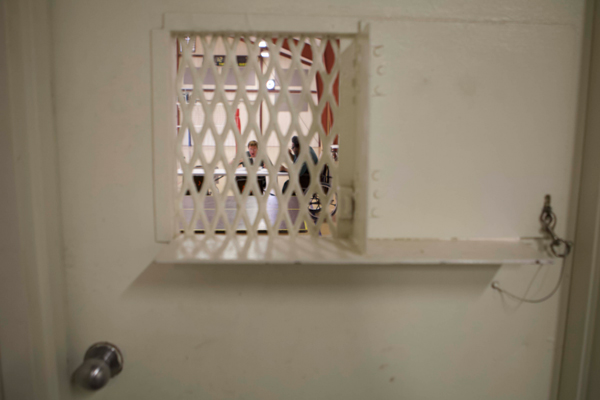
They’re like, “You are super passionate about this, we can tell, and you should do this.” I was like, “I guess I have to do this.” Little by little, I started to try to gain access to prisons and start collecting lyrics. By the end of 2013, I had done the first recording for Die Jim Crow. I was working a full-time job this whole time and it would take years for stuff to materialize into a formidable product or work of art.
It takes passion, hard work, luck, meeting the right people and moving forward. I’ve told you many times the story that you’re telling the songs prior to incarceration, incarceration, and post-incarceration. The stories that people have the songs, I see it as being a place someday. It will be interesting because of the music. If you look at Hamilton, it tells a story. The songs that you’re producing do the same thing. Maybe it’s too hard for some people to listen to but it’s reality. That’s the only way that change is going to happen when people realize what is going on. You’re a catalyst in that. What you’re doing is one of the ways that we’re going to help raise awareness.
We refined our mission statement. It’s not public yet.
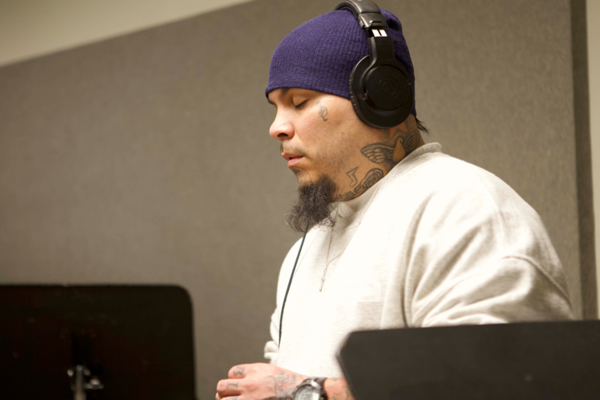
It’s going to be if you tell us.
It will be in a matter of days. This is nice timing. It is, “Dismantling stereotypes around race and prison in America by amplifying the voices of justice impacted musicians and artists.” It took eight years to get to that. That’s that nice and delicate balance that we were able to achieve because it has expanded to not only working with Black artists. We work with folks of all backgrounds, but the spirit of Die Jim Crow is to dismantle stereotypes.
Jim Crow was the original stereotype in America and it led to so much damage. It started as this stupid minstrel song and then it became a pejorative to describe Black people. There was some softness to the word. They used it to define legal segregation laws that were on the books in the South and the North. They were not on the books but they existed. These are the laws that segregated Blacks and other races as well from White society. It started with a song and we’re attempting to work towards a world where we have a fair justice system and where people are viewed as equals and not others.
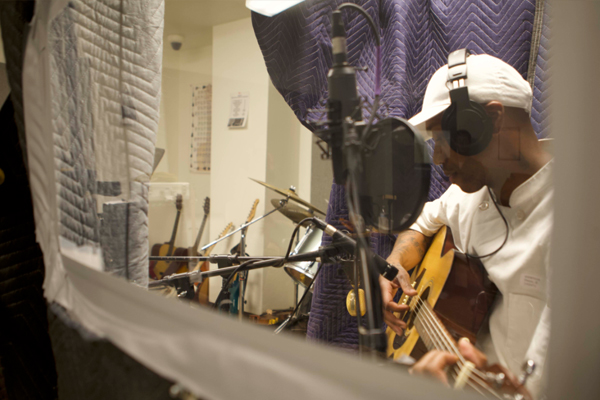
How can people support you?
Being a nonprofit, we love donations, and DieJimCrow.com/donate is where you can do that. We also are very grassroots and love the good old-fashioned word of mouth. We want you to stream and buy our music. We have merchandise on our website that you can easily find as well. Even going a little bit of an extra effort like if you use Spotify, let’s say, save our album to your playlist. That helps us a lot. Things like that you might not even think about too much. Subscribe to Die Jim Crow’s YouTube channel and Territorial has a YouTube channel with some cool lyric videos. Subscribe to both.
Follow us on all the platforms but don’t just follow us. Leave comments and interact with us. We want to inspire conversations. We are a nonprofit and we have a small bandwidth at the moment. We’re working hard to grow that bandwidth. We have several projects that are not released yet. We’re working very hard to stick to our word to the artists that we do work with already and have been waiting very gracefully and patiently in line for sometimes years. Because the nature of our bandwidth is slow, it takes a while to put out those records. We owe our priorities to The Masses, B.Alexis and Bentley 448, and artists like that.
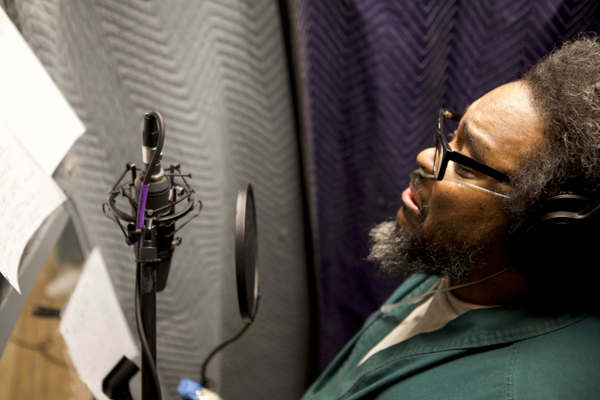
However, shoot us your stuff. If you’re an artist and maybe you’re in prison, but you have some stuff on SoundCloud, or you got out and have some stuff up, send us a work sample. We will take a look at it. We do some virtual volumes that we took hold off for a while but hopefully, we will start back up in the spring.
We could maybe feature you on one of those. Even if it’s a shout-out to you on Instagram Story or something low stakes. We are a community. We want to expand our network and meet other talented people in the field so you can reach out. Just know we have a heavy list of upcoming projects. Our email is Info@DieJimCrow.com. Do not message us on Facebook because Facebook is annoying to access.
I have your book The Die Jim Crow EP. This is what I got years ago when I met you. How can people get this? What are your other books and things that you’re selling?
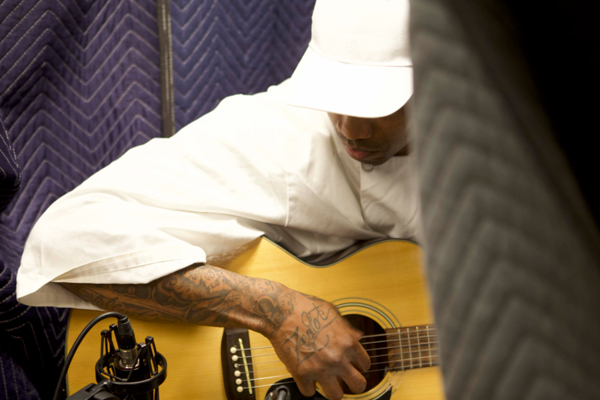
That’s our only book at the moment. It’s called The Die Jim Crow EP book. It’s on DieJimCrow.com/merch so you can easily find it. It’s got a beautiful photo of BL Shirelle on the cover, who is our Deputy Director and one of our artists. There you’ll find other merch. So far, we’ve done a limited physical merch line for Territorial. We have some CDs and postcards. We hope to do a vinyl run in a shirt as our fan base grows, but you’ll find some cool merch there and some other shirts. Check it out.
I can’t wait to get together again at a conference or something when things are opened up. I hope to get out to New York. It would be great to see you also here in Vegas. A couple of years ago, you and Maxwell came out. We did How Incarceration Affects Everyone. I’d love to do something like that again. We’ll let everybody know if and when we do something else out here in Vegas because it’s an easy place for everybody to get to.
I always like to leave with some words for people that are reading. The years that you’ve been doing this, the people you’ve met, and you’ve met some wonderful people that if we saw them walking down the street, a lot of us would cross over and not go near them. You found heart in people and people are people. They are human beings. Is there something that you can leave the audience with?
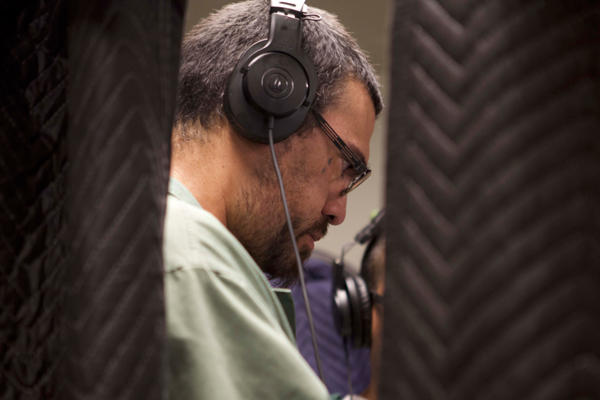
I’ll leave with a quote from Spoon Jackson. He is a poet and flute player in California. He has been incarcerated since ’78. I’ve been writing, talking to him on the phone, and visiting him a couple of times. I have had a relationship with him since 2014. He says, “We all have one foot in darkness and one foot in light.” I always returned to that simple adage in my head because it’s true. Everyone has their blind spots and some people have fault lines, trauma, whatever it might be that screwed them up or maybe they have some sort of condition or whatever. You can’t judge people fully just by their conviction or anything around their crime.
People are very complicated. What I’m saying is not that people are good, but people are not just their crimes. Be open to hearing their art. Even if you think that people like Michael Tenneson should never get out of prison, it’d be hard to argue that. That doesn’t mean that Tenneson shouldn’t be able to make incredible music, which I believe that he does. Be open-minded to that stuff. You don’t need to get on board by being some hardcore prison reformist or abolitionist even. Have an open mind to the art. Start there and then let’s see where the conversation goes.
I don’t think you could have said it any better. I appreciate you taking the time to speak with us. I appreciate you. I can’t wait to see what’s coming up next. We’ll stay in touch.
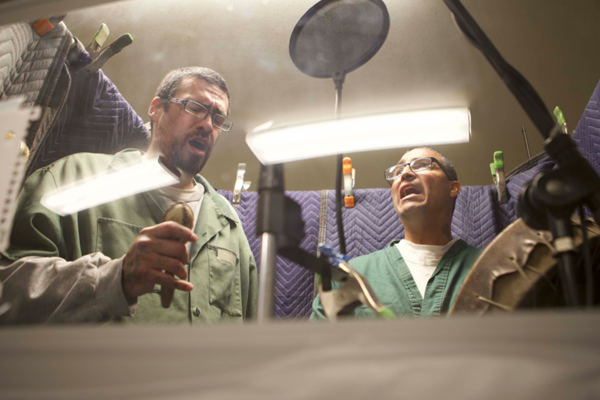
Thank you for having me on the show. You’ve also had a very long journey. I commend you for all that you’ve accomplished. I look forward to the future.
Thank you.
Important Links:
- Prison: The Hidden Sentence
- Die Jim Crow
- InterNational Prisoners Family Conference
- Tlaxihuiqui
- The New Jim Crow
- DieJimCrow.com/donate
- Spotify – Die Jim Crow
- YouTube – Die Jim Crow Records
- Territorial – YouTube
- Info@DieJimCrow.com
- The Die Jim Crow EP
- www.Instagram.com/diejimcrow
- https://www.PrisonFamiliesAlliance.org
About Fury Young
 Fury Young is the founder and Executive Director of Die Jim Crow Records, the first non-profit record label for currently and formerly incarcerated artists in United States’ history.
Fury Young is the founder and Executive Director of Die Jim Crow Records, the first non-profit record label for currently and formerly incarcerated artists in United States’ history.
Under Young’s stewardship, DJC Records has gained access to five prisons and recorded full bands, choirs, and solo musicians, totaling over 60 incarcerated artists and fourteen formerly incarcerated artists. DJC has released seven singles, one EP, and two full-length albums, all to international accolades.
Young’s solo work includes music, film, poetry, and collage. His debut book of poetry, Meat & Milk, was published in 2016 by Lit Riot Press. Young has shown work at Anthology Film Archives, UnionDocs, The New School and MoMA PS1. He has been featured in the Los Angeles Times, Washington Post, Rolling Stone, Colorado Public Radio, Pitchfork, Grammy.com, Decarceration Nation, and Lee Camp’s Redacted Tonight, among others.
Love the show? Subscribe, rate, review, and share!
Join the Prison: The Hidden Sentence Community today:

Jailaid says
I love this statement “You can’t judge people fully just by their conviction or their crime.” So true, no one is perfect and the people and even authorities outside of prison are far more worse than what you were convicted for.
Jailaid says
“You can’t judge people fully just by their conviction or their crime.” So true, no one is perfect and the people and even authorities outside of prison are far more worse than what you were convicted for.